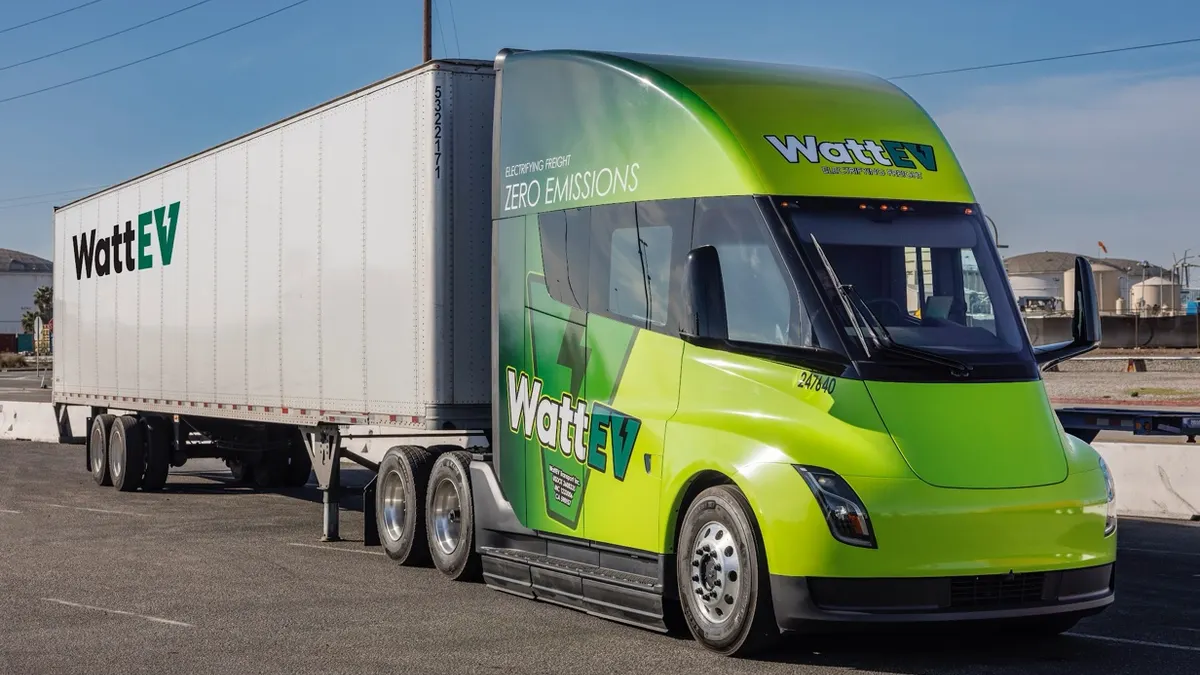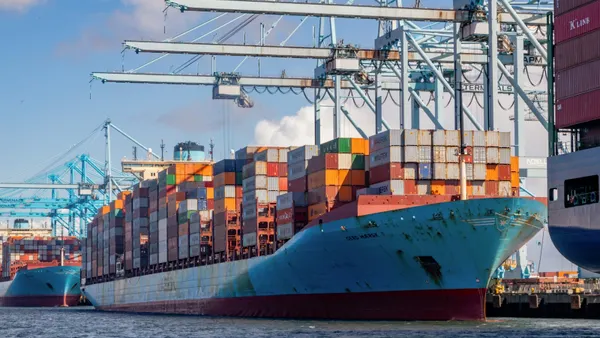Dive Brief:
- WattEV, a provider of heavy-duty electrification services, broke ground on its sixth heavy-duty electric truck charging depot, located at the Port of Oakland, according to a June 24 press release.
- The California-based company said the depot will be capable of charging 25 medium- and heavy-duty electric trucks concurrently at up to 240 kilowatts, or six trucks at 1.2 megawatts.
- The depot is set to establish a zero-emissions freight corridor from the Bay Area to other parts of Northern California, Nevada and beyond. It’s also designed to reduce charging times to 30 minutes or less compared to diesel refueling times.
Dive Insight:
Port electrification efforts are growing in Northern California as more stakeholders are interested in zero-emissions freight transport.
With most truck charging infrastructure being concentrated in Southern California, the future charging depot at the Port of Oakland has been several years in the making, WattEV CEO and co-founder Salim Youssefzadeh said in the release.
“Having a charging depot on Port property matters, because it gives truck owners a nearby place to charge their trucks either overnight or opportunity to charge during the day,” said Tracy Fidell, senior maritime projects administrator in the port’s maritime division, in an email. “This is especially important for independent owner-operators, who may not have their own yard or dedicated charging station.”
The Port of Oakland has several initiatives to accelerate its zero-emissions efforts. Some of those projects include expanding solar power usage, a commitment to add geothermal energy to its power portfolio and increase the port’s ability to charge green equipment used throughout its facilities.
“In July 2023, the Port was awarded an $119 million grant from the state, earmarked for infrastructure improvements including maritime facilities, upgrades to adjacent roadways and electrifying cargo handling equipment,” according to the port. “These will improve operational efficiencies and reduce future air emissions.”
WattEV is also the port’s partner in its Environmental Protection Agency-funded Clean Ports Program grant. “They will be purchasing 200 battery-electric trucks and leasing them to truck drivers for Port drayage,” Fidell said.
The Bay Area port also joins the Port of Los Angeles in EV transition efforts despite legislative uncertainty surrounding the future of electric vehicles.
In May, the Southern California port adopted a spending plan to help with its transition of drayage fleets to zero-emissions models, according to a press release.














